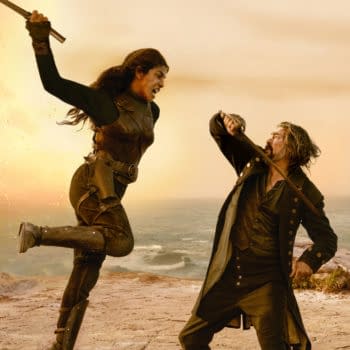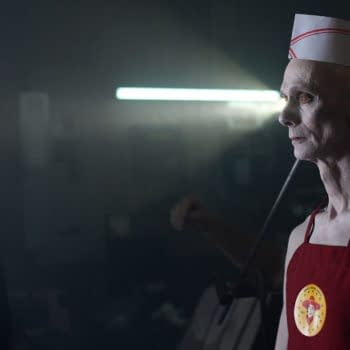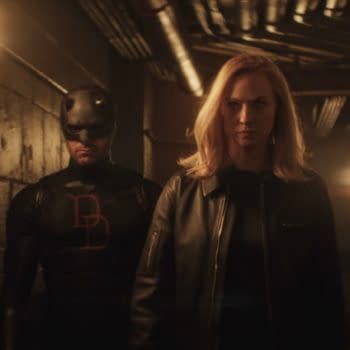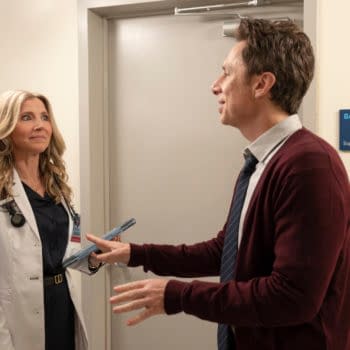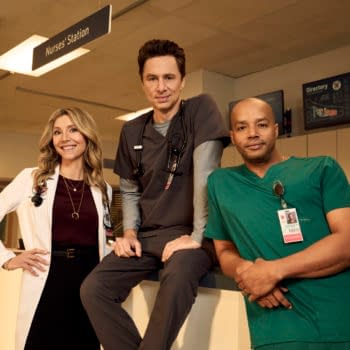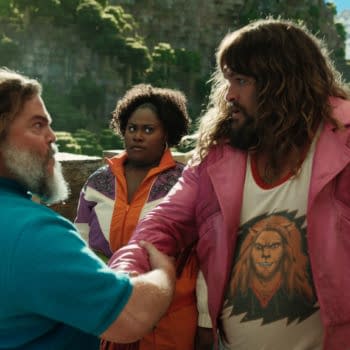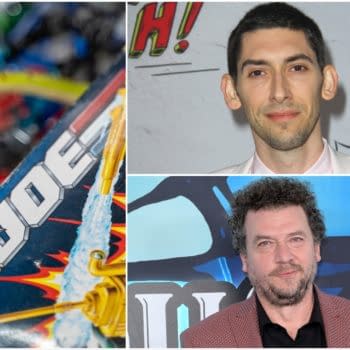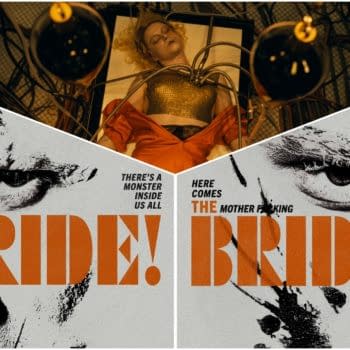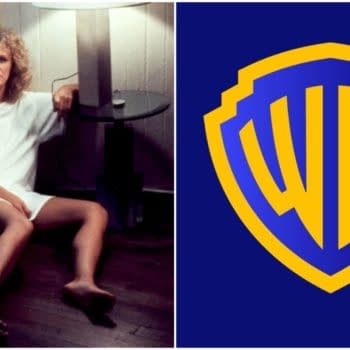Posted in: Exclusive, Interview, Movies, Prime | Tagged: amazon prime video, Liz W. Garcia, Nicole Stott, space cadet
Space Cadet Consultant Nicole Stott on NASA Space Science & Accuracy
NASA astronaut, engineer & consultant Nicole Stott spoke to Bleeding Cool about her work in the Amazon Prime Video space comedy Space Cadet.
Article Summary
- NASA astronaut Nicole Stott consults on the film Space Cadet for scientific accuracy.
- Stott discusses how her NASA experience influences Hollywood projects, especially space-themed films.
- She shares her journey to becoming an astronaut and the impact of space exploration.
- Stott addresses common Hollywood inaccuracies and applauds Space Cadet's realistic depiction of space training.
Some filmmakers and showrunners play fast and loose with the science in science fiction, while others, like Space Cadet director Liz W. Garcia, pride themselves on recreating the authentic experience, and that's where NASA astronaut and engineer Nicole Stott comes in as a consultant. The Prime Video film follows Tiffany "Rex" Simpson (Emma Roberts), who has dreams of space but lacks the grades and credentials. Thanks to her best friend Nadine (Poppy Liu), who may have embellished Rex's qualifications on her application, Rex becomes NASA's unlikeliest recruit in their ultra-competitive astronaut training program. With two spaceflights and 104 days in space under her belt, Stott spoke to Bleeding Cool about how she got involved with the film, how frequently Hollywood requests her consulting services, her journey to fly in space, how accuracy affects quality, space travel, and confronting stereotypes of the genre.
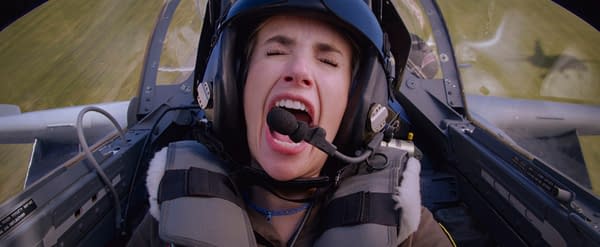
Space Cadet Consultant Nicole Stott on Portraying the Accurate Journey to Space
Bleeding Cool: How did you get involved with 'Space Cadet?'
I got an email introduction through my friend Bert Ulrich at NASA headquarters. You probably know about Bert in the world of space communication. He passed on the introduction to Liz [W Garcia] and her team, who sent an initial cut of the script. I was happy to be able to add some insight [laughs] and answer some questions for them, not to mention excited an uplifting, fun, space-themed film was going to be created.
How often do these consultant offers come up for you to ensure their space project is accurate?
It happens often. In any of the space films created, it's probably true in any other genre or industry that the creators will want to reach out to somebody with expertise in that field. I've done this several times before, and some of my friends and colleagues also added their consult to different films. It's nice when it does happen. This is an industry where you can't guarantee everything you might pass on as advice will be incorporated because there's a whole creative side to it. The underlying story to the creators might be more important than the technical detail once you realize that as an advisor, you know where you should be sharing your thoughts.
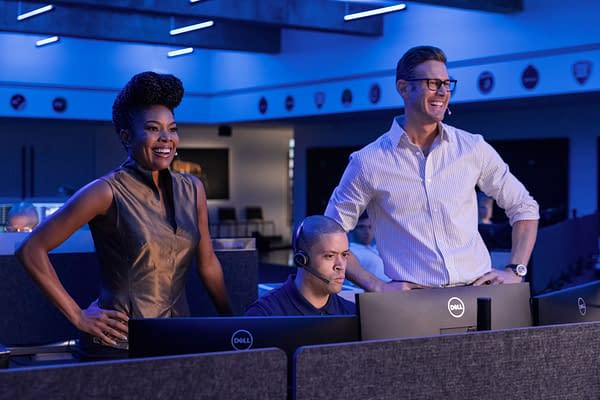
What inspired you to get into space?
I'm grateful to my parents, who shared what they loved with me. My creative mom was a nurse, which is where I got my artistic talents from. My dad liked to build and fly small airplanes. As a family, we grew up hanging out at the local airport, and I developed a love of flying, wanting to know how things fly. That led down the path as a person growing up when the shuttle program was getting going and then flying.
If you want to know how airplanes fly, why would you not want to know how spaceships fly? That led me to one day, after about nine years working for NASA, seeing what astronauts do and thinking, "Oh, astronaut! That's cool, but that's something special people get to do. Why should I consider that? Why would they pick me?" As I started to see more of what astronauts do, I realized, "Man, 99.9 percent of an astronaut's job, sadly, is not flying in space. It's here on Earth." Most of what astronauts are doing here on Earth is like what I was already doing as a NASA engineer, which encouraged me to consider it.
I also slowly understood everything we're doing in space is about improving life on Earth, which was attractive to me more than the adventure side of flying in space. All that came together with some mentors who encouraged me to pick up the pen [laughs] and fill out the application. That set me on my path, and I am old enough to watch the first moon landing as a kid. Even at six or seven years old, you realize that's an extraordinary thing to see happening. It stays with you, even if it isn't like this prime inspiration for everything you do. Big, compelling things like that stick with you, too.
How much has pop culture influenced people to pursue this line of work? Does it make a difference if they are men or women? Or do you find people share more than an organic background like yours?
It's a combination, for sure. I think about my husband, who's probably one of the greatest sci-fi experts in the world, and learning through him, along with literature, movies, and other things, how we could watch how sci-fi has become sci-fact and how inspirational that is. Your mention of pop culture in general with films like 'Space Cadet' will attract more people than people who love space, right? Through the story or something else, like how it's lifting you as you watch this film, you might think, "I wonder what's going on in space right now. They talk about this space station. She helps to fix this airlock. What are they doing on the space thing? Do we still have a space station?" Those questions encourage us to know what's through fantastical stories.
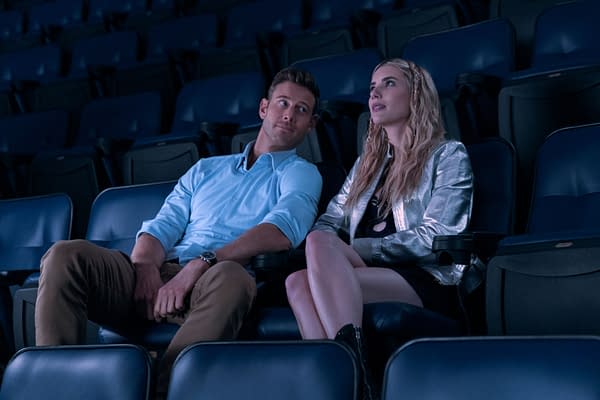
What is the status of space exploration these days? Things have slowed considerably since the Challenger and Columbia accidents and space tourism has gained traction.
When you have an accident like Challenger or Columbia, you slow down, stop, figure out what went wrong, how to manage it, and, if possible, prevent it from happening again. That's what NASA deliberately did as part of the space shuttle program. The space shuttle flew out 135 flights with a beautiful record of human spaceflight, and the capabilities it provided were extraordinary. We haven't seen anything like it since, and it'll probably be a while before we do.
Those things need to happen. The evaluation, then moving forward, and what I loved in both cases, we didn't shut down. We moved forward, and I believe the crews on those vehicles would have wanted us to do it. As the space shuttle was phased out, new vehicles were brought online. Sadly, that takes time, and for SpaceX to get going or Blue Origin, Boeing, and others to get going takes time. We've seen where it seems like there was a lull, right? There was getting humans from the US to space and back, but it's part of the time it takes.
NASA has been supportive and involved along the way. What's happening with SpaceX and others is a wonderful example of what can happen when you bring public and private partnerships together, which is what's happening. NASA crews fly on SpaceX and Boeing vehicles to get to and from the International Space Station, which continues for the space station until at least 2028. NASA is facilitating other commercial companies to have more commercial space stations in low-Earth orbit.
Companies like Axiom, Voyager, Vast, Sierra Space, and others are actively involved in doing that with NASA as a partner. Part of that is going to include the space tourism side of it. It's part of the natural commercial evolution of our activity in space, and I'm hopeful that tourism and interest will allow us to take more of these baby steps. Even bigger things about what we do in space are about improving life on Earth, and I can speak to having that view of Earth from space, and it's compelling. I'm happy more people might have that opportunity.
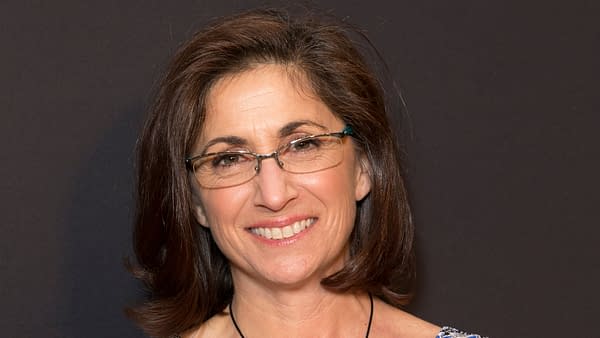
What pet peeves do you have that Hollywood gets wrong about space? Where do you think they are most accurate?
Wow. It's a mix of a lot of different films. What is becoming more accurate, even in a movie that doesn't necessarily reflect any reality of science or how we behave in space and the work we do, is the graphics and the way they can show how people move. It gets progressively better. Just in the microgravity environment, how they show people moving through space, the quality of the environment around them, and the way the spaceship might look with the sun shining on it on the outside. I remember watching some of these films and thinking, "Oh my gosh! That looks so much like I remember when I was doing a spacewalk."
Then there's basic science stuff that is always wrong [laughs], and I don't know why. I'll watch a film, and I'll be like, "Man, if you added the truth to the science in this, even if the story wasn't good, from the way the spacecraft works or the way you can get from one spaceship to the other, that would be so easy to do." It would make the story better, and one pet peeve of mine is when there are crew members, especially from all around the world, there is so much drama, conflict, and arguments put into the story when that is not how we behave in space. We go into it as partners and behave like partners. We know what it means to be a successful crew. Even as human beings, where you might not always have a good day, you've already thoughtfully figured out how you work as a successful crew supporting each other. What I loved about 'Space Cadet,' from start to finish, was that people lifted and supported each other, bringing their best to have a successful and inspiring mission. That's the way we behave in real life.
Was there a sequence in 'Space Cadet' with logistical issues that took longer than usual to solve?
I had a couple of consultations with Liz and her team, mostly script review and looking at the extremes of a particular situation. They wanted to ensure what we do in training is represented, even though it wasn't the exact way we might train in real life. Different things like getting in weird configurations, isolation, crew dynamics, physical fitness, and others, they wanted to make sure they were represented in a way in the film, and they did a good job. Even though it might not copy our unusual configurations exactly, they were represented in the movie. I never felt like I had to fall on a sword about anything in this film.
The whole motivation behind it was to lift and inspire people and provide a fun experience with a space theme to show there's goodness in human behavior and how we can be inspired and bring our dreams to life. There was the scene where Rex crawls out on the arm to help wrestle that piece of metal to clear the airlock. I remember the conversations about that scene, whereas where originally, she was going to crawl out and jump, I'm like, "Oh my gosh! That makes my stomach churn. She needs to have a tether and be hooked to the arm or the space station." You can still bring that scene to life with her tether to the robotic arm. I love that they incorporated that in, and there was this tension and drama of her coming out and needing to get that tether hook on. That's what we feel in real life. You want to secure yourself so you can still have the story but build some truth to what we would do on a real spacewalk into that scene, too.
Space Cadet, which also stars Tom Hopper and Gabrielle Union, is available on Prime Video.






